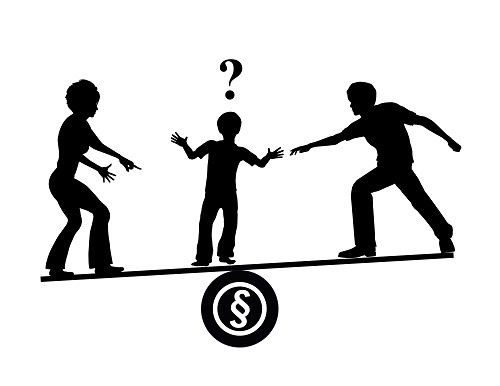Men and Women React Differently to Parenting Stress
by Kathy Slattengren, M. Ed., Priceless Parenting (sign up for monthly parenting newsletter and receive 20+ printable charts for kids and parents)

Children add both joy and stress to your life. Gender differences between men and women affect how each responds to that stress. Understanding these differences and providing the support your partner needs can make the difference between a relationship that grows and one that falls apart.
Additional Stress from Children
Dr. John Medina describes the additional stress babies bring in his book
Brain Rules for Baby. "For most first-time moms and dads, the first shock is the overwhelmingly relentless nature of this new social contract. The baby
takes. The parent
gives. End of story. What startles many couples is the excruciating toll it can take on their quality of life - especially their marriages."
Having children increases stress due to things like:
- Lack of sleep
- Increased chores
- Decreased personal time
- Needing to set limits on children's behavior
- Responding to challenging situations like teens making poor choices
Medina goes on to say "By the late 1980's and 90's, investigations in 10 industrialized countries, including the United States, demonstrated that marital satisfaction for most men and women dropped after they had their first child - and continue to fall over the next 15 years. Things didn't improve for most couples until the kids left home." Yikes!
Babies and preschoolers certainly need plenty of adult help. In
The Social Animal, David Brooks reports "The average baby demands adult attention of one kind or another every twenty seconds." Researchers from the Gottman Institute at the University of Washington found that preschoolers make 50 demands per hour on their parents or caregivers. No wonder parents and caregivers feel stressed!
Differences between How Men and Women Handle Stress
Men and women have very different responses to stress. In his book
Why Mars and Venus Collide: Improving Relationships by Understanding How Men and Women Cope Differently with Stress, Dr. John Gray explains "Men tend to shift gears, disengage, and forget their problems, while women are compelled to connect, ask questions, and share problems. This simple distinction can be extremely destructive in a relationship if it is not appreciated and respected."
The physical differences between men and women's brains contribute to the differences in how each handles stress. When men are stressed their testosterone levels drop and doing something relaxing like reading, watching TV or napping helps rebuild their testosterone. On the other hand when women are stressed, their oxytocin levels fall. Talking about the problem and receiving messages of caring, understanding and respect rebuilds that oxytocin in women.
Under stress, men tend to get quiet and retreat to their caves to recover. Women typically seek out someone to talk to about their stress. Appreciating these differences in handling stress can help couples better understand each other and provide the support the other one needs.
Working Better Together Under Stress
When there's a problem you need to discuss with your partner, it's best to have this discussion when you are both calm. If you are upset, the thinking part of your brain is significantly hampered by the chemicals released in your brain from this upset.
Once you are ready to discuss an issue with your spouse or partner, it helps to say things in ways that don't make the other person defensive. Gray gives a number of examples of what to say that will either make things better or worse.
For example, instead of saying "
That doesn't make any sense." Gray suggests responding "
Okay, let me make sure I understand you. Are you saying ..." Instead of claiming "
You are getting upset over nothing." say "
I know this is upsetting. Are you saying ...?"
Gray provides many recommendations for how to approach discussing problems in ways that are more likely to have positive results. He even provides ways to respectfully take a time out if the conversation is getting heated. He suggests saying "
What you say is important to me. I need some time to think about this and then we can talk." rather than "
This is a complete waste of my time. I can't talk with you."
Effects of Parental Stress on Kids
When parents fight, children's stress levels also go up. Researchers have measured the stress hormones in children's bodies and have found that even infants respond to their parent's fighting. Children who experience high stress in their homes have increased adrenaline in their systems. Adrenaline affects things like the child's ability to focus attention, shift attention and sustain attention.
By learning ways to better handle your stress, you will be able to improve your relationship with your partner. Your kids will also benefit with a more peaceful home. It's worth the effort!